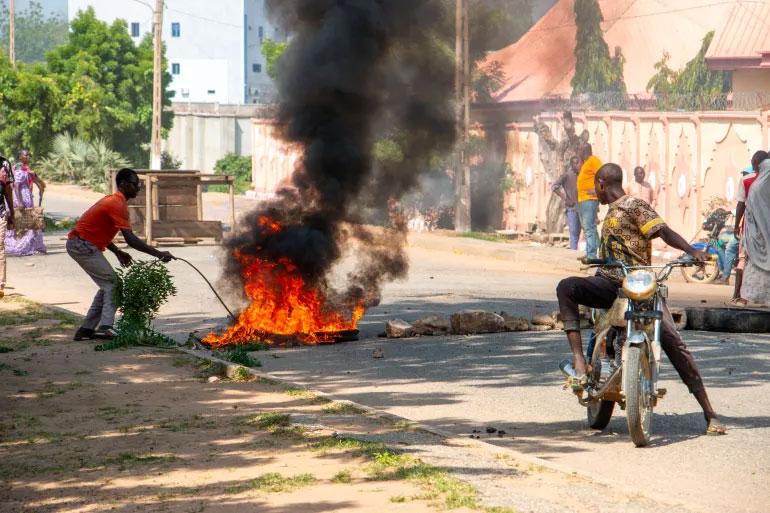LGBT people imprisoned amid post-election unrest in Cameroon
Reporters for Erasing 76 Crimes are LGBTQ rights activists
Arbitrary arrests have targeted trans Cameroonians and human rights defenders

The tensions following the Oct. 12 presidential election in Cameroon plunged the country into a spiral of repression. Under the guise of maintaining order, the authorities increased arbitrary arrests, particularly targeting transgender people and human rights activists.
No end of turmoil was in sight as the results of the presidential election were announced today. Long-serving President Paul Biya, the world’s longest-serving head of state, was declared the victor with 53.66% of the vote, the constitutional council stated. Challenger Issa Tchiroma Bakary was credited with 35.19%.
Tchiroma disputed the results and called for protests, claiming that he won 54.8% of the vote to Biya’s 31.3%.
“There was no election, it was rather a masquerade,” Tchiroma told Agence France-Presse today. “We won unequivocally.”
Tchiroma wrote on Facebook today that hat two people had been killed after shots were fired at civilians outside his home in Garoua, northern Cameroon.

Arbitrary arrests and prolonged detentions
In the weeks after the election, dozens of LGBTI people were arrested in the streets, in public places, or even in their homes. The reasons given were often vague: “disturbing public order,” “suspicious behavior,” or “dress code non-conformity.” These arrests are accompanied by prolonged detentions without access to a lawyer or information about the charges.
In English-speaking areas, LGBTI people were persecuted by security forces and local militias. Arbitrary arrests, public humiliations, and detentions without trial are on the rise.
Repression against LGBTI people has been especially harsh in Cameroon’s English-speaking regions. According to the human rights advocacy groups Working for our Wellbeing, Humanity First Cameroon, and SOS Solidarity, five LGBTI youth who were arrested in Buea and Kumba have been transferred to Kondengui prison in Yaoundé, known for its inhumane conditions.
“I was arrested leaving the market. They told me my appearance was creating a disturbance. I stayed in a cell for five days without knowing why,” one trans woman told a local organization.
Criminalization and misuse of the law
Article 347-1 of the Penal Code, which criminalizes same-sex relations, is misused to justify the deprivation of liberty of trans people, even in the absence of any sexual act. Law enforcement regularly conflates gender identity and sexual orientation, reinforcing stigmatization and criminalization.
Human rights defenders targeted
Activists who denounce these abuses are themselves exposed. Several LGBTI rights defenders have been arrested for “inciting revolt” or “spreading false information.” Some have been taken into custody, others forced to flee or go into hiding. The post-election unrest is serving as a pretext for a broader crackdown on any dissenting voice.
Calls for release and reform
Local and international organizations call for:
- The immediate release of those arbitrarily detained
- An end to arrests based on gender identity or appearance
- Reform of the Penal Code to end the criminalization of LGBTI people
- Guarantees for freedom of expression and the protection of human rights defenders




